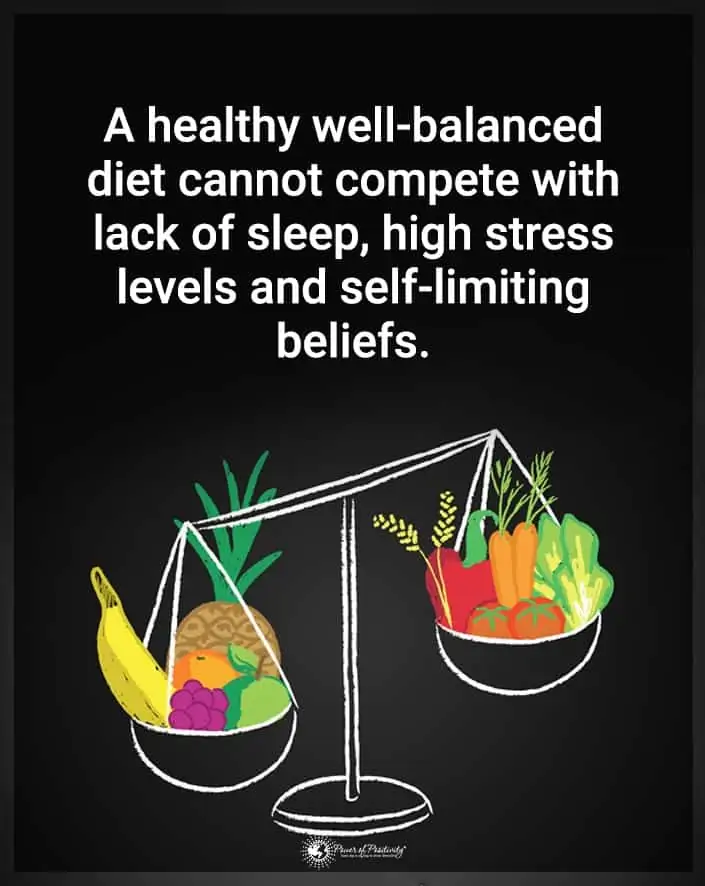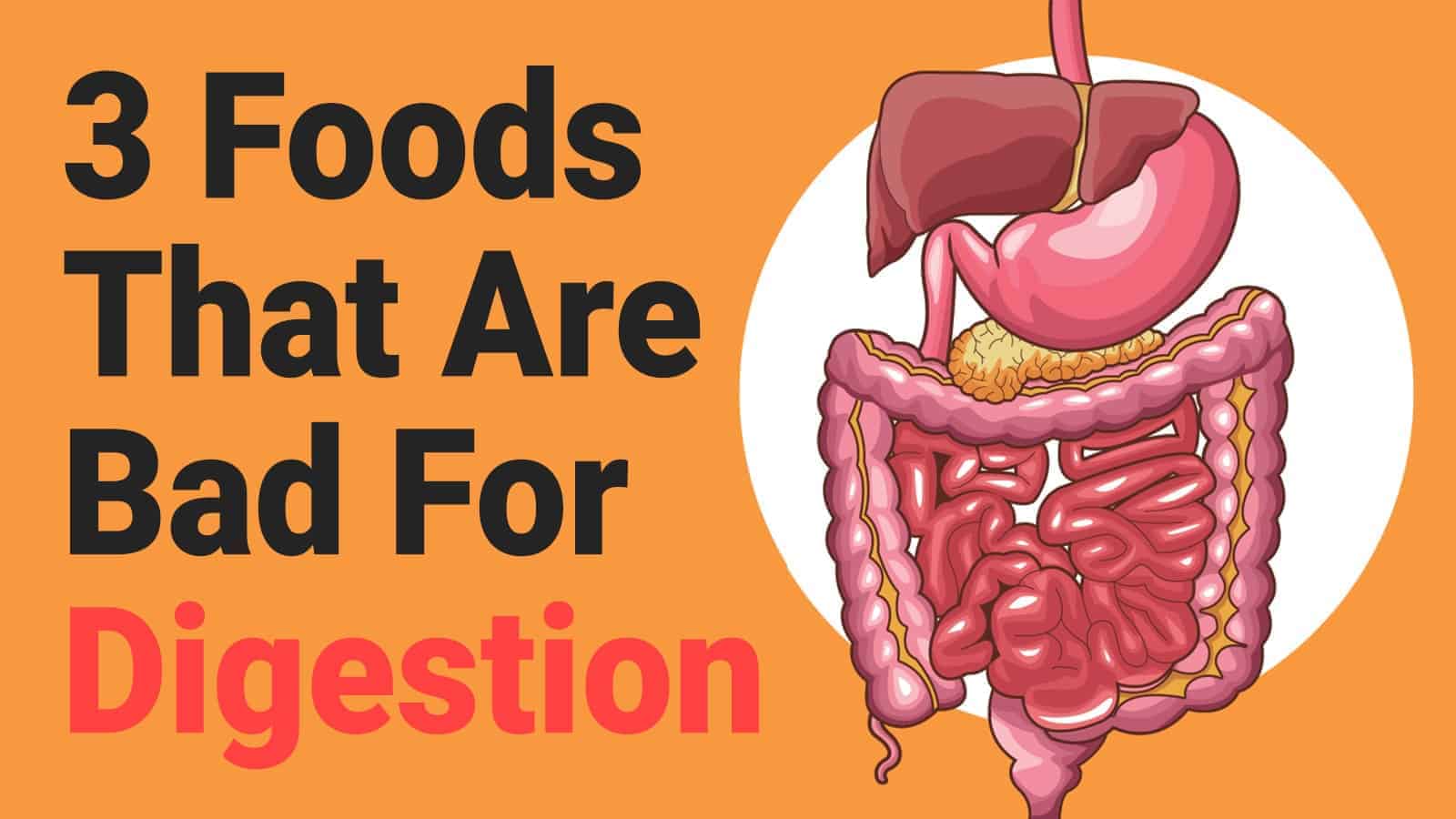Digestion is one of the most critical processes of the body. It allows us to properly process the yummy things we eat by breaking them down and converting them into nutrients. We get many positive benefits from a strong, healthy digestive system.
It’s safe to say that the end goal of eating any meal is to digest the food consumed successfully. This gives us energy, fullness, and the necessary components for better health. But what happens when your food is too difficult for the digestive system to handle?
Some foods aren’t made for an easy passage into and through the body. They might cause indigestion due to specific properties. They might result in tummy aches and gas. And, worst of all, they may cause serious harm to your digestive system. Here are some foods that are bad for digestion which you should avoid!
Here Are 3 Foods That Are Bad For Digestion
“A healthy outside starts from the inside.” – Robert Urich
1. Artificial sweeteners
Artificial sweeteners are everywhere. They’re in lots of candies and other items. And it’s not surprising – America has a huge sweet tooth! Most Americans consume approximately 20 teaspoons of sugar per day. Yikes!
That means sugar-free products are suitable for us, right? In fact, many products that claim to be sugar-free only rely on technicality. They might not have natural sugar, but they do contain artificial sweeteners.
But still, artificial sweeteners are much better than sugar, aren’t they? The American Diabetes Association and the American Heart Association have both agreed that these are better than sugar in combating diabetes and obesity. Unfortunately, they’re still not great, especially regarding digestion.

How Digestive Bacteria Works
The gut is full of healthy bacteria that help the digestive system function better. There are between 300 and 500 kinds of them. Paired with other microorganisms, they line the digestive system in the colon and intestines.
These bacteria are responsible for many different functions, including metabolism, digestive processes, and even moods. Because the gut has a ton of nerve endings, issues in balance can lead to problems in the central nervous system and brain. This means bad gut bacteria levels can lead to stress, less positive thinking, and even developmental issues.
You need healthy balances of all these bacteria in order to remain healthy. Research suggests that gut bacteria balance and number are different in those with certain illnesses than those in healthy individuals. Digestion issues are especially common.
A too-high amount of gut bacteria is known to cause the metabolization of fiber into fatty acids, leading to excess liver fat. Too-low amounts of certain bacteria can result in other diseases, and unbalanced numbers are equally dangerous. Often, imbalanced gut bacteria can result in:
- Metabolic syndrome
- Heart disease
- Type 2 diabetes
- Obesity
- Inflammatory Bowel Disease
- Colon cancer
- Rheumatoid arthritis
- Depression
- Anxiety
- Autism
How Artificial Sweeteners Affect Gut Bacteria
Research published in the Molecules journal shows that artificial sweeteners can be toxic to our necessary gut bacteria and bad for digestion. The study, conducted by Singapore’s Nanyang Technological University and Negev, Israel’s Ben-Gurion University, tested the use of common sweeteners with mice. Here are the sweeteners they tested:
- Aspartame
- Sucralose
- Saccharine
- Neotame
- Advantame
- Acesulfame Potassium-K
When fed just 1 mg per milliliter of each sweetener, the mice experienced negative effects on their digestion. The bacteria within their digestive systems was discovered to have turned toxic. This serves as proof that sweeteners can negatively affect microbes within the digestive system.
Artificial sweeteners can cause glucose intolerance in consumers and severely affect the body’s health. Some individuals experience indigestion, diarrhea, and other adverse effects from excess sweetener consumption.
Does this mean you should never use artificial sweeteners? Not at all. They are effective alternatives to sugar and are healthier in some ways. However, as with anything else, consume in moderation!
2. Fried food
Most of us already know that fried food is extremely unhealthy. But it’s not just because of its high calories, excessive fat, and oil content, or questionable nutritional content. It’s also bad for digestion.
This is especially true for noticeably fattier foods, such as certain cuts of meat and steak or french fries and chips. These foods are packed with saturated fat, which the body naturally has trouble digesting, to begin with.
This is especially dangerous for those who regularly suffer from heartburn. The valve to the stomach will become looser, allowing for the rise of stomach acid up into the esophagus. This means heartburn will be even more aggravated.
But that’s not the only way fried food is bad for digestion. Here are three more factors that make these tasty but unhealthy treats terrible for your gut.
It Causes Gut Bacteria Imbalance
As we mentioned earlier, the digestive system is full of healthy bacteria. These bacteria are needed in a specific balance in order to maintain healthy digestive function. Unfortunately, fried foods disrupt this careful balance.
The microbiome in your gut is always affected in some way by what you eat. Fatty, fried foods smothered in grease are decidedly not good for it. They can completely tip the needed balance of both these microorganisms and the fatty acids in the body. Potentially, this can lead to hormone imbalances, depleted positive thinking, and worsened immune system health.
If you’re looking for fats that are good for the gut, opt for more nourishing sources of fat that aren’t fried. These will provide more positive results. Some examples include:
- Fish (especially fatty fish)
- Avocados
- Butter
- Extra virgin olive oil
Of course, keep in mind that fats should be consumed only in moderation. Unless you are on a specific diet, fats shouldn’t take up too much of your daily nutrition!
It’s Exhausting For The Digestive System
Fat is incredibly difficult to digest. It requires a mix of digestive juices, such as stomach acid and bile as well as enzymes to be fully broken down. This means digestion processes have to work overtime to even get the fat down in the first place.
Meanwhile, the needed digestive juices may not be available. If you’re under stress or taking medication, the volume of these juices you have can be much lower than what is needed. Many people crave junk food and fried food in times of stress. Unfortunately, caving into those cravings means your system will be struggling to digest any of it.
That’s not all. The addition of fat – including oils and grease – into a system with depleted digestive juices doesn’t just give you indigestion. It can also cause:
- Nausea
- Bloating
- Stomach pain
- Abdominal discomfort
To avoid these issues, opt for more wholesome foods when you’re feeling stressed. Although it can seem like the last thing you want to eat, you’ll feel much more positive when eating right.
It Makes You Need To Run Straight To The Bathroom
Since fried foods aren’t easy to digest, you might wind up with gross, greasy food sitting in your stomach. As they pass through your intestines, they still won’t be very well digested. This means you might wind up with oily or greasy stools. Yuck!
Some people even experience diarrhea from eating fried foods. So if you don’t want to do a number on your digestion and spend the day sitting on a porcelain throne, maybe skip the fried food during your next meal.
3. Alcohol
There are a few ways that alcohol isn’t bad for you. A little bit now and then is alright, but an excess has plenty of damaging qualities. Mainly, it affects the kidney and livers, but it also affects the digestion.
Alcohol is not digested in the same way as most other foods. It swerves past typical digestive processes and enters the bloodstream directly. In fact, only 20% of the alcohol you drink will be absorbed in the stomach, while a huge 80% winds up being absorbed through the small intestine. Here are some of the ways this can be harmful to the digestive system.
It Changes The Way Stomach Acid Is Produced
Drinking alcohol can cause a huge increase in stomach acid. When more stomach acid is produced, the stomach can no longer efficiently destroy harmful bacteria. This means the small intestine could become infected with bad bacteria.
Many who drink too much alcohol also often experience intestinal sores, severe pain in the stomach, and other similar issues. According to a study by NCBI, not only is this dangerous and a cause for gastrointestinal tract disorders, it severely affects digestion.
It Damages Mucous Cells
The stomach lining is packed with mucous cells. These cells are responsible for preventing acid-based damage and any abuse from digestive enzymes.
Unfortunately, drinking too much, too quickly, can cause harm to these mucous cells. When these cells are damaged, nothing stands between the stomach lining and intense acids. This can lead to lesions in the stomach lining, discomfort, and inflammation.
It Stops The Stomach From Emptying Itself
This mainly applies to drinks with an alcohol content of higher than 15%. These consumables are capable of preventing the stomach from being able to empty itself. Essentially, it causes the food in the stomach to get stuck.
When kept in the stomach for too long, food degrade from bacteria. This robs you of precious nutrients. On top of that, it can also cause abdominal pain and nausea.

Final Thoughts On Foods That Are Bad For Digestion
Not all foods are great for digestion. There are plenty out there that cause a good deal more harm than good, hidden and waiting to spring! By steering clear of these 3 foods that are bad for digestion, you’ll keep your gut, your body, and yourself happy and healthy!




















